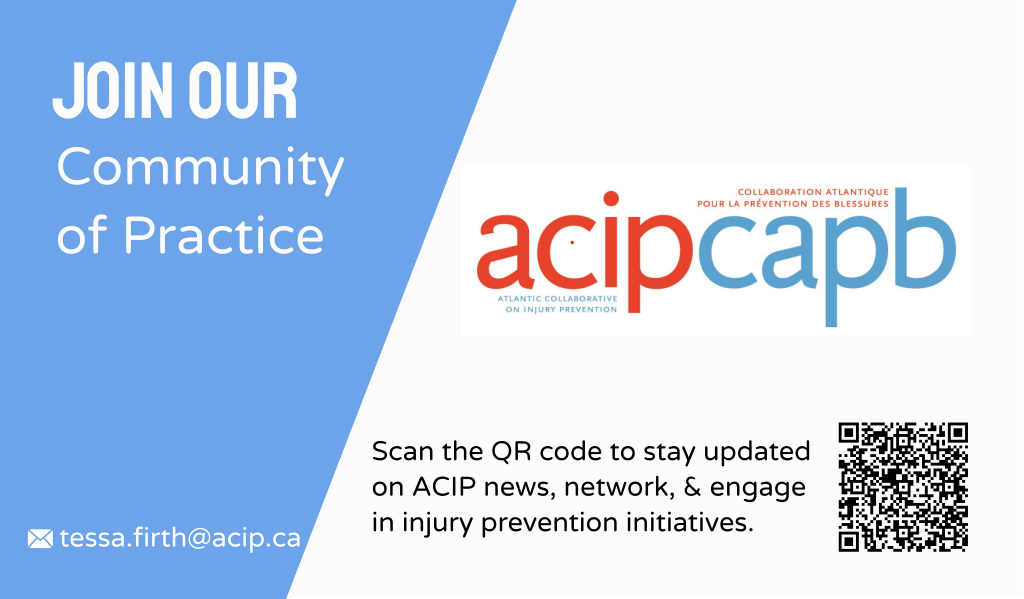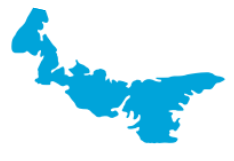Welcome to the Atlantic Collaborative on Injury Prevention
The Atlantic Collaborative on Injury Prevention (ACIP) is a partnership of injury prevention practitioners from both government and non-government organizations. The goal of ACIP is to reduce the burden of injury in Atlantic Canada by using a social determinant of health lens.
Join our Community of Practice to stay updated on Injury Prevention Initiatives and network with other like-minded individuals. Register by clicking HERE.

![]()



In addition to ACIP’s resources, we have put together a list of resources from other Atlantic, National, and International groups on injury prevention topics during this time. These can be found HERE, organized by topic.
For news and updates, visit our ACIP Recent News Tab.
To learn more about the Economic Burden of Injury and review ACIP's Infographics which were made from the 2022 Cost of Injury Report, click HERE.
Address: PO Box 36135 Halifax RPO Spring Garden, NS, B3J 3S9
Email: This email address is being protected from spambots. You need JavaScript enabled to view it.
Phone: 902-877-1562
Visit and Follow our LinkedIn Page![]()





